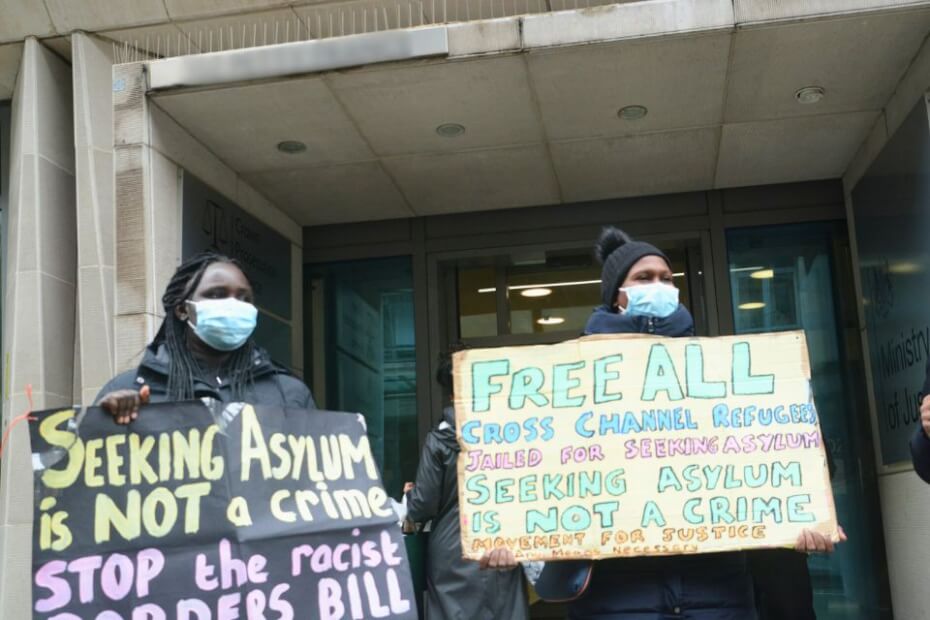
The United Kingdom (UK) is taking new steps towards stricter border security measures and enhanced rules enforcement.
UK’s Home Secretary Yvette Cooper announced on 21 August a set of new steps the government is taking to strengthen border security.
The new measures also seek to tighten immigration enforcement and significantly increase the return of failed asylum seekers.
These changes are part of the government’s plan to better manage who comes into the UK and to reduce illegal migration.
“By increasing enforcement capabilities and returns, we will establish a system that is better controlled and managed,” Cooper said in a news release.
The new border security measures come after the Prime Minister met with leaders from several European countries to discuss border security measures.
The collaboration aims to find collective solutions to immigration challenges, such as joint efforts to combat people smuggling.
The Home Secretary has been working closely with international partners to enhance cooperation in tackling organized immigration crime.
New border security measures introduced
Cooper has outlined several important border security measures the government will take.
Boosting intelligence and enforcement capabilities
The UK government will add 100 new National Crime Agency (NCA) officers.
This is on top of the 50 percent increase in NCA officers stationed in Europol, the European Union’s (EU’s) law enforcement agency.
These officers will focus on disrupting organized immigration crime networks that smuggle people into the UK.
They aim to stop criminal groups that help people enter the UK illegally, often by dangerous boat crossings across the English Channel.
Currently, the NCA is already investigating about 70 high-risk smuggling and trafficking groups.
They had collaborated with international partners to seize about 400 boats and engines intended for people smuggling.
Increasing detention capacity

The government plans to reopen two detention centers, Campsfield and Haslar, adding 290 new beds.
These facilities will hold more people waiting to be relocated back to their home countries.
Many human rights advocates worry that reopening these centers could cause more issues.
They also fear it will bring back past problems, such as poor detention conditions.
However, the government believes it is necessary to manage the increase in deportations.
More deportations
A significant component of the new measures is a planned increase in deportation flights.
The British government aims to return more failed asylum seekers than at any time since 2018.
Its goal is to deport 14,000 people who have been denied asylum or have no right to stay in the UK by the end of the year.
To help with this, the government had reassigned 300 workers to focus on speeding up these deportations.
Cracking down on illegal employment
The Home Secretary announced a new intelligence-driven program to identify UK employers hiring individuals without the legal right to work.
Businesses could face penalties, such as fines, be shut down, or even face legal action.
The government hopes that fewer people will try to enter the UK without permissionby stopping illegal employment.
Rationale, challenges of new border security measures

Cooper emphasized that these measures are essential for restoring order and ensuring immigration laws are enforced fairly and effectively.
“We are taking strong and clear steps to boost our border security and ensure the rules are respected and enforced,” she said.
The new Border Security Command will help by working closely with other countries to stop smuggling groups.
However, critics argue that the measures, particularly the reopening of the detention centers, are a step backward.
Increasing detention centers brings back past problems encountered at these facilities.
Others suggest the government should focus instead on helping people fleeing dangerous situations in their home countries.
Human rights groups have expressed concern that the government’s approach could dehumanize migrants.
These measures could also fail to address the root causes of migration, such as war and persecution in the migrants’ home countries.
Looking ahead
Many will judge the success of these new border security measures on how effectively they reduce illegal immigration.
Many will also want to see whether they can overcome the legal and logistical challenges of deporting failed asylum seekers.
The UK government has pledged to take a balanced approach to immigration enforcement.
This includes respect for human rights while maintaining the integrity of the UK’s borders.
The government also plans to continue collaborating with other nations to address the issue of illegal immigration.
It believes that close collaboration with other countries can disrupt criminal networks that profit from smuggling people into the UK.

